While reporting record profits of $6.5 billion for the winter quarter, Samsung issued a statement saying it did not plan to reduce its CapEx investment despite the realization that it would gradually lose Apple as its largest components customer.
Samsung Electronics, which includes the company's PCs, mobile products and chip and screen production, earned (correction: the article previously overstated Samsung's earnings by citing operating profit, not net profits) $6.5 billion in net income on $52.45 billion in revenues for the quarter, compared to Apple's $13.1 billion in net income on $54.5 billion in revenues.
For the same quarter, Google reported $2.9 billion in net income on $14.4 billion in revenue, while Microsoft announced $6.38 billion of net income on 21.46 billion in revenue.
While outperforming all of its peers, Apple is the only stock to have dropped significantly after reporting earnings.
Apple and Samsung
Apple has long worked closely with Samsung to source SoCs, RAM and other components for its iPod and iOS devices. After becoming the world's largest consumer of RAM to build iPods, Apple turned its attention toward more sophisticated devices with the iPhone and iPad, both powered by ARM chips modified by Apple but fabricated by Samsung.
However, beginning in 2009, Samsung's semiconductor subsidiary launched an investigation into how to cheaply duplicate Apple's efforts, and subsequently its phone subsidiary began an intense three month effort to copy the iPhone, as revealed last fall in the lawsuit between the two companies.
After a verdict was reached in that case, Samsung executives held in an emergency meeting that emphasized the existence of a "strict internal firewall" between its component supply business and handset operations, erected to "avoid potential conflicts of interest" with customers like Apple.
Persistent rumors have indicated Apple has been working to shift its component orders away from Samsung, from its A series SoC chips that serve as the central processor for iOS devices to display screens, RAM and other components.
While Samsung has reportedly passed Apple as the top consumer of chips globally, losing Apple's business means that Samsung's production volumes could be slashed. Apple and Samsung represent 15 percent of the entire semiconductors market, a bigger share than the next five buyers combined.
Apple's large appetite for chips and small portfolio of products means that Samsung would have to give up large, consistent and predictable orders that are more profitable than producing smaller batches of different parts for a fragmented variety of smaller players.
Losing Apple's high volume production orders would be incredibly disruptive to Samsung's expansion plans, and would also result in Samsung's own component prices becoming more expensive due to lower volumes.
Samsung already makes relatively little on its semiconductor operations compared to its far more lucrative smartphone business. Losing Apple's orders would not only hurt Samsung's component profitability, but could also drive up its internal production and development costs, undoing the progress it has made in rivaling Apple's smartphone business.
 Daniel Eran Dilger
Daniel Eran Dilger



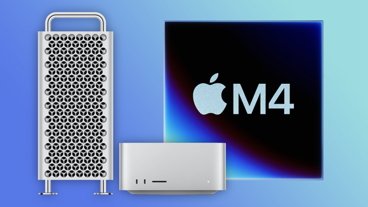
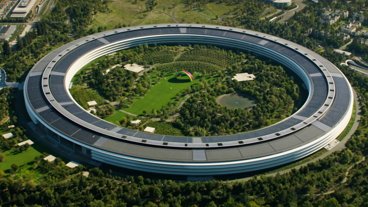


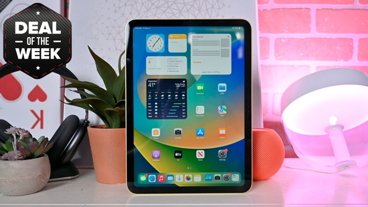
-m.jpg)






 Christine McKee
Christine McKee
 Charles Martin
Charles Martin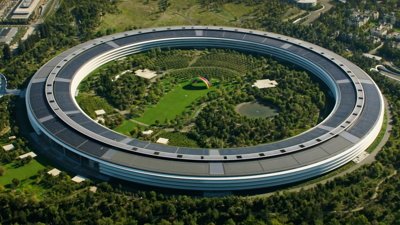
 Wesley Hilliard
Wesley Hilliard

 Malcolm Owen
Malcolm Owen

 William Gallagher
William Gallagher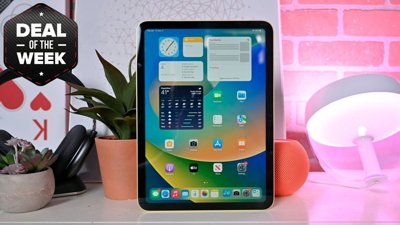








22 Comments
Hey, let's make it clear. $8.3 billion = Samsung Electronics operating profit. their net income is $6.6 billion. Apple net income for the holiday quarter is $13.1 billion. Apple still kicks Sammy's butt. Samsung Electronics makes all kinds of stuff, smartphones, old style phones, TVs, washing machines, notebooks, tablets, MP3s, chips, refrigerators, etc, etc.
Qualcomm is taking up Samsung's spare capacity for their LTE modems and Snapdragon SoCs, so there shouldn't be much of a problem for Samsung. Apple in turn buys these Qualcomm modems for the iPhone and iPad..
Hey, let's make it clear. $8.3 billion = Samsung Electronics operating profit. their net income is $6.6 billion.
Am I reading this backward? How can their profit be higher than their revenue?
[quote name="Tallest Skil" url="/t/155625/samsung-says-it-will-not-reduce-chip-investments-despite-losing-apples-business#post_2264345"] Am I reading this backward? How can their profit be higher than their revenue? [/quote] Their revenue was $52.45 billion, which is very impressive. I think it makes them #2 behind Apple's recent acheivement as #1 with Exxon coming in as #3 in the mid 40's.
Now where are the Wall Street analysts saying that Samsung is doomed when Apple officially cuts off all their business to them?